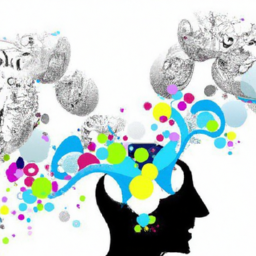A Deep Dive into Data-Driven Personalization: Explore how data can drive personalization in marketing efforts.
Introduction
Imagine walking into a store and being greeted by a salesperson who knows your name, your preferences, and recommends products tailored specifically for you. Sounds like a dream, right? Well, with the power of data-driven personalization, this dream is becoming a reality in the world of marketing.
What is Data-Driven Personalization?
Data-driven personalization is the practice of using customer data to tailor marketing efforts, such as content, recommendations, and offers, to meet the individual needs and preferences of each customer. By collecting and analyzing data, marketers can gain valuable insights into customer behavior and preferences, allowing them to deliver relevant and personalized marketing messages.
How Does Data-Driven Personalization Work?
Data-driven personalization works by gathering data from various sources, such as website interactions, social media engagement, purchase history, and demographic information. This data is then analyzed to identify patterns, trends, and individual preferences. With this information, marketers can create personalized experiences that resonate with each customer, leading to higher engagement, conversions, and customer loyalty.
1. Customer Segmentation
One of the key aspects of data-driven personalization is customer segmentation. By dividing customers into distinct groups based on characteristics, preferences, and behaviors, marketers can create targeted marketing campaigns for each segment. For example, an online clothing retailer may segment their customers into categories such as men, women, or specific age groups. This allows them to deliver personalized offers and recommendations that are relevant to each group.
2. Personalized Content
Data-driven personalization also enables marketers to create personalized content that speaks directly to the interests and needs of individual customers. By leveraging data on customer preferences, browsing behavior, and past purchases, marketers can deliver tailored content that resonates with each customer. For example, an e-commerce website may showcase product recommendations based on a customer’s browsing history, making the shopping experience more relevant and enjoyable.
3. Recommendation Engines
Recommendation engines are another powerful tool in data-driven personalization. By leveraging customer data, including purchase history, browsing behavior, and social media interactions, recommendation engines can suggest relevant products or content to each customer. This not only helps customers discover new products they might be interested in but also increases the chances of conversion and customer satisfaction.
The Benefits of Data-Driven Personalization
Data-driven personalization offers numerous benefits for both businesses and customers.
1. Enhanced Customer Experience
When customers receive personalized marketing messages and experiences, they feel valued and understood. This leads to a better overall customer experience, increased engagement, and higher customer satisfaction.
2. Improved Conversion Rates
Personalized marketing messages are more likely to resonate with customers, leading to higher conversion rates. By delivering relevant offers and recommendations, businesses can increase the likelihood that customers will make a purchase or take the desired action.
3. Increased Customer Loyalty
When customers feel that a business understands their needs and provides tailored solutions, they are more likely to become loyal customers. Data-driven personalization helps build strong relationships with customers, fostering loyalty and repeat business.
4. Optimized Marketing Efforts
By leveraging customer data, businesses can gain insights into which marketing strategies and tactics are most effective for each customer segment. This allows marketers to optimize their marketing efforts, allocate resources more efficiently, and achieve better results.
The Future of Data-Driven Personalization
As technology continues to advance, the possibilities for data-driven personalization are endless. From artificial intelligence and machine learning to augmented reality and virtual reality, the future of personalized marketing is exciting.
Imagine a world where every interaction with a brand is tailored to your individual preferences, from personalized virtual shopping experiences to AI-powered virtual assistants that provide personalized recommendations. This level of personalization has the potential to revolutionize marketing and create even stronger connections between businesses and customers.
In conclusion, data-driven personalization is transforming the way businesses understand and engage with their customers. By leveraging customer data, marketers can deliver relevant and personalized experiences that meet the unique needs and preferences of each individual. This not only enhances the customer experience but also leads to higher engagement, conversions, and customer loyalty. As technology continues to evolve, the future of data-driven personalization holds even more exciting possibilities. So, get ready for a personalization revolution in the world of marketing!











